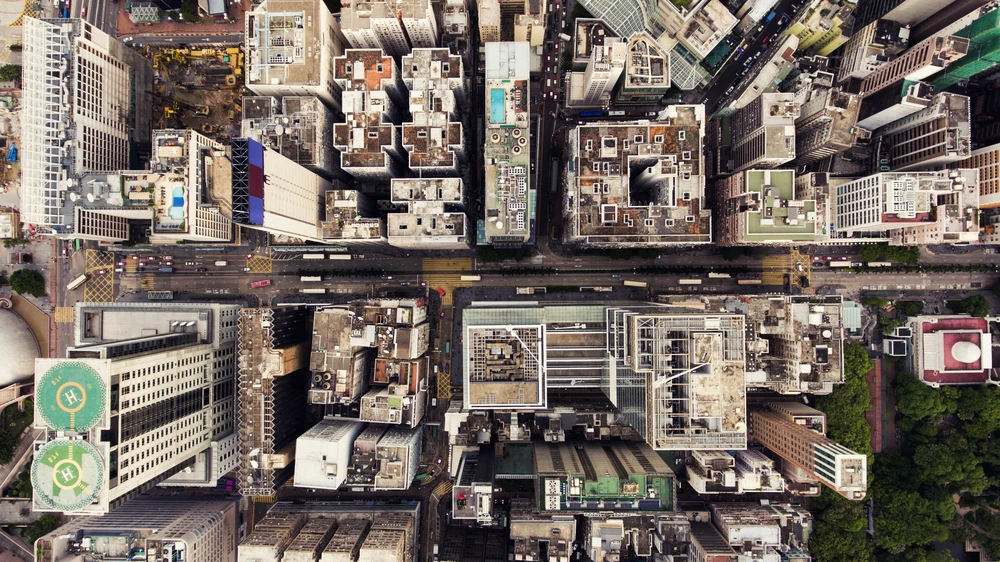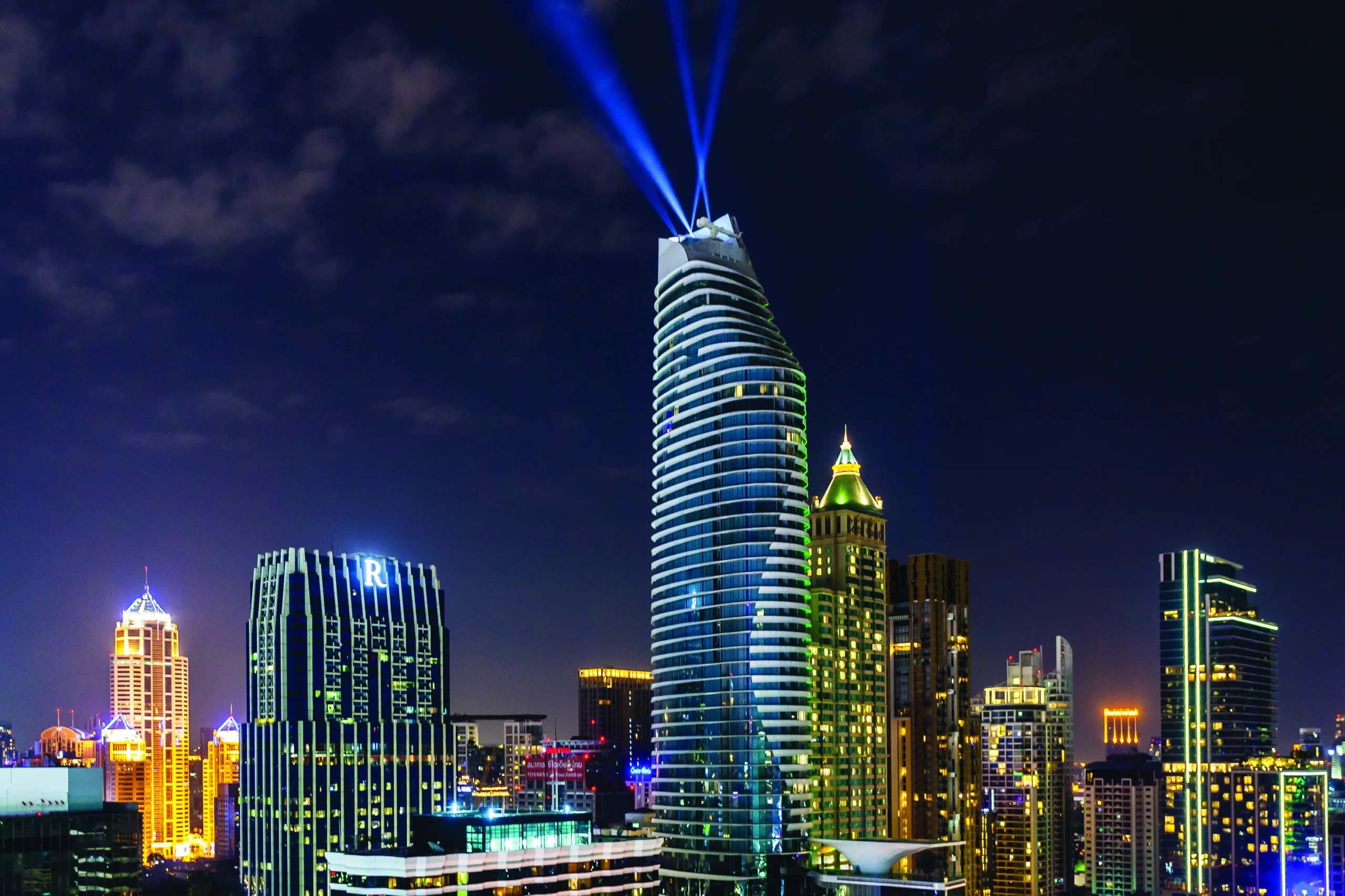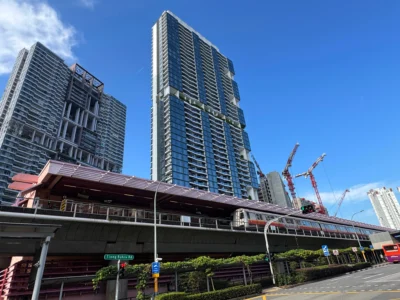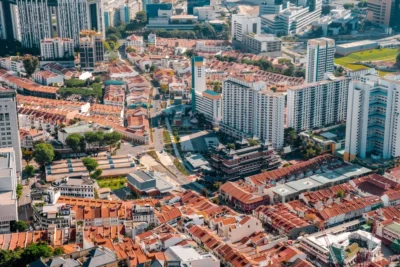AI transforms Asia’s real estate sector: Enhancing valuation, customer interaction, and sustainability
From property valuation and customer interaction to measuring sustainability and revolutionising video marketing, AI is impacting nearly every aspect of Asia’s real estate industry

I t looks like the end—or at least a curtailing of—The Line for Saudi Crown Prince Mohammed bin Salman’s ambitious 170-kilometre-long linear megacity. Designed as a glasswalled city of the future to transition Saudi Arabia away from oil dependency, the fantastical project, initially slated to eventually house 9 million people, has been dramatically scaled back to just 2.4 kilometres.
The news is unlikely to shock many industry observers. After all, The Line was infamously conceived, promoted, and debated almost entirely in the digital sphere. Viewing the bleeding-edge digital renderings and videos, it may have felt like tomorrow had arrived yesterday. But the project’s scale-back illustrates the persistent gap between ambitious virtual concepts and practical reality—even with substantial financial backing from the House of Saud.
Still, technological advancements are redefining how developers, buyers, and analysts navigate the real estate market. In Asia, in particular, firms are leading the charge to adopt and utilise the latest developments, according to Nick Myers, a real estate AI expert and co-founder of digital healthcare start-up RedFox AI.
“Asia has historically always been a market that tends to readily adopt and utilise new technologies far before their North American and European counterparts,” he says. “When it comes to using AI in the real estate sector some of the primary use cases across Asia have been assisting with property valuation and investment decisions, automated customer interaction via intelligent chatbots, operational efficiency, and increased sustainability through smart buildings.”
The latest artificial intelligence-backed tools like Sora and Gemini are being specifically tailored to address unique challenges in the region’s real estate market. Sora focuses on revolutionising real estate video marketing by using AI to efficiently generate high-quality property videos. Meanwhile, large language models like Gemini process vast amounts of data to identify trends, predict market fluctuations, and even generate reports. This is invaluable for informed decision-making, especially in fast-growing Asian markets with limited historical data.
“In Asia’s diverse markets, AI chatbots equipped with real-time language translation are transforming customer service by providing instant, multilingual support to potential tenants, leading to higher engagement and faster leasing cycles,” explains Dr Ken Ip, chairman of the Hong Kong-based Asia MarTech Society. “AI-enabled virtual assistants also streamline administrative tasks, such as lease management and documentation, freeing up property managers’ time for more strategic activities.”
AI’s capacity to analyse large datasets also enables it to forecast environmental impacts and optimise the energy efficiency of buildings, thereby reducing their carbon footprint. “AI is already being used to optimise building efficiency to reduce energy consumption and manage resources in places like Singapore,” according to Myers. “This is just the precursor to true ‘intelligent buildings’ that will be entirely self-sufficient at some point in the not-too-distant future.”
Asia has historically always been a market that tends to readily adopt and utilise new technologies far before their North American and European counterparts
One company that has embraced AI’s potential to improve sustainability is Thailand-based Magnolia Quality Development Corporation (MQDC). Amongst its initiatives, the firm has integrated IoT technology, enhanced with AI, for environmental management.
“Climate change is, of course, a big concern for all developers, but AI is like having a super-powered brain on our side,” says Kittikun Potivanakul, MQDC’s chief technology officer. “It crunches tons of data on weather patterns and rising sea levels, helping us design smarter buildings.”
One of MQDC’s recent leaps in AI adoption is the development of its “Virtual Gallery and AI Agent”. The initiative bridges the real and virtual worlds, offering an immersive property viewing experience with multilingual AI agents trained with data from the sales teams.
Despite the strides in technology, a lingering concern in the real estate industry is the potential for AI to replace human roles. Kittikun emphasises that the reality is more about enhancement than replacement.
“One of the biggest misconceptions about AI in real estate is that it’s replacing agents,” he says. “While AI excels at data analysis and automation, the human touch remains crucial. Here in Asia, where cultural nuances and personal connections are critical, AI can empower agents to become more efficient by streamlining tasks like property matching and market analysis, freeing them to focus on building relationships.”
Ip also reiterates the importance of addressing these issues, particularly in ensuring a smooth transition for workers affected by AI integration. Upskilling programmes, such as those initiated by governments in Singapore and South Korea, are essential. These programmes focus on enhancing skills in data analysis and AI technology management, preparing the workforce for new roles that AI will eventually require.
Training initiatives in Singapore, for example, offer a wide array of courses that are available through the SkillsFuture programme. These courses aim to upskill participants in various tech-driven fields, including AI applications in business and managing digital transformation projects. Similarly, South Korea’s Digital New Deal invests heavily in training the workforce in data science and AI, helping to mitigate job displacement risks by equipping workers with the skills needed for tomorrow.
Moreover, the ethical use of AI is paramount to maintaining trust and integrity within the industry. Future regulations, as anticipated by experts, are likely to address data privacy, transparency, and the unbiased use of AI. Ensuring that systems are explainable and that their processes are clear will be essential in upholding ethical standards and fostering a responsible integration of technology, according to Ip.
“As AI becomes more integrated into the industry, it is crucial to establish ethical frameworks and standards to ensure fair and equitable use of these technologies,” he says. “Collaboration between industry stakeholders, policymakers, and technology providers will be essential in shaping regulations that balance innovation and ethical considerations in the real estate sector.”
Regulatory bodies around the world are beginning to respond with guidelines that mandate not only transparency but also accountability in AI deployments. For instance, the European Union’s proposed Artificial Intelligence Act is a comprehensive approach aimed at safeguarding fundamental rights and safety by enforcing strict adherence to ethical standards across various applications of AI.
In the real estate sector, these standards could prevent the misuse of AI in critical areas such as credit scoring, property valuations, and customer interactions, ensuring that AI aids rather than alienates stakeholders. Tools and methodologies such as algorithmic impact assessments and AI audits are also being discussed as ways to implement these ethical standards.
“By working together, developers, users, and regulators can ensure that AI technologies are used to benefit all parties and sustain trust in the rapidly evolving real estate landscape,” Ip says.
The downsizing of The Line might symbolise a recalibration of expectations, but it also underscores the pursuit of innovative, practical urban development. As Asia leads in AI integration within real estate, it sets a global example for aligning ambitious tech-driven projects with market and regulatory realities.
The region’s proactive approach, particularly through sustainable initiatives in Singapore and corporate ventures like smart building technologies, illustrates the critical role of AI in fostering environmentally responsible urban futures. It also emphasises the importance of collaboration across disciplines to ensure that technology enhances, rather than complicates, built environments.
“The future of real estate development depends on a cooperative strategy where technologists, policymakers, and the community converge to ensure AI’s ethical and effective integration,” Myers says. “This multidisciplinary collaboration is essential for turning visionary concepts into functional and sustainable realities that redefine our interaction with urban environments.”
This article was originally published on asiarealestatesummit.com. Write to our editors at [email protected].
Recommended
What comes next for Southeast Asian real estate in 2026
From return-to-office realities to climate and tech disruptions, Southeast Asia’s residential markets are being reshaped by deeper forces
Foreign demand recalibrates in Southeast Asia housing markets
Even amid global headwinds, Southeast Asia’s property markets hold appeal for foreign buyers
Tariffs and turmoil test Singapore homes as suburbs hold firm
Foreign levies, regional wars, and buyer fatigue are putting pressure on the city-state’s housing market
Gulf luxury markets lure global capital amid policy shift
Gulf nations are shaking off a reputation for overt bling to lead a post-pandemic luxury boom









